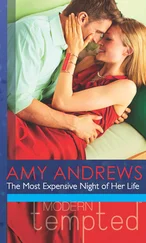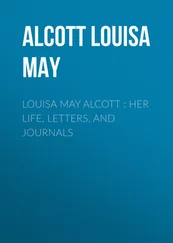In Sense and Sensibility , Northanger Abbey and Emma Jane Austen uses the forum of the public theatre to implement crucial plot developments. In this, she was influenced by Fanny Burney, whose novels about the London ton used the playhouses as important meeting grounds for the advancement of plot lines. For example, in Evelina the heroine first attends Drury Lane to see Garrick in The Suspicious Husband and is later reunited with Lord Orville at a performance of Congreve’s Love for Love . Here she is subjected to impertinent remarks by the fop Lovel, who compares her to the character of Miss Prue, an ignorant rustic young hoyden, a role made famous by the comic actress Frances Abington. 33As Burney and Austen demonstrate in their novels, the public theatres provided an arena for the exchange of news and gossip.
In Northanger Abbey there is a special irony at play, for Austen’s novel about an ingenue’s entrance into Bath society self-consciously mirrors Burney’s Evelina: or The History of a Young Lady’s Entrance into the World . In one of the more subtle allusions to Evelina , Catherine quotes from Congreve’s Love for Love when she tells John Thorpe that she hates the idea of ‘one great fortune looking out for another’ ( NA , p. 124). Like Evelina, Catherine delights in going to the play, though she has been told that the Theatre Royal Bath is ‘quite horrid’ compared to the London stage ( NA , p. 92).
Northanger Abbey ’s status as a burlesque Gothic novel has unwittingly deflected attention away from Austen’s parody of the heroine-centred sentimental novel popularised by female writers like Burney and Edgeworth. Instead of London’s beau monde , unfamiliar terrain to Austen, the resort city of Bath becomes her microcosm of fashionable high society. Northanger Abbey was written in 1798–99. As Jane Austen and her mother were at Bath during the later part of 1797 visiting the Leigh-Perrots, her account could well have been based on actual experience.
In 1799 Jane Austen revisited Bath, staying at Queen Square with her brother Edward Knight. This visit included a trip to the Theatre Royal: ‘The Play on Saturday is I hope to conclude our gaieties here, for nothing but a lengthened stay will make it otherwise’ ( Letters , p. 47). She does not name the play, but the account in the Bath Herald and Reporter for 29 June 1799 reveals that she saw Kotzebue’s drama The Birth-Day and ‘The pleasing spectacle of Blue-Beard’ on that occasion. In the eyes of the Bath newspapers, the new Kotzebue comedy was considered to be a vast improvement on his previous works, which were notable for their immorality:
If the German Author has justly drawn down censure for the immorality of his productions for the stage, this may be considered as expiatory – this may be accepted as his amende honoyrable [ sic ]; it is certainly throughout unexceptionable, calculated to promote the best interest of virtue, and the purest principles of benevolence: and though written in the style of Sterne, it possesses humour without a single broad Shandyism. 34
James Boaden, a professed admirer of Kotzebue, described the play as ‘the naval pendant to the military Toby and Trim’, and thought it contained ‘one of the best delineations of human nature coloured by profession’. 35
The Birth-Day , a comedy in three acts, was translated from Kotzebue’s play Reconciliation , and adapted for the English stage by Thomas Dibdin (1771–1841). 36The plot is centred on a feud in a Bertram family. Twin brothers, estranged over a law suit, are finally reconciled on their sixty-third birthday by the efforts of their children, cousins who are in love with each other. The heroine, Emma Bertram, is devoted to her father and has vowed never to marry until she is finally persuaded by her cousin: ‘But if a man could be found, who would bestow on your father a quiet old age, free from every sorrow; who, far from robbing the father of a good daughter, would weave the garland of love round three hearts, who would live under his roof, and multiply your joys, by reconciling your father and your uncle.’ 37
Two of the best comic characters in The Birth-Day are a boatswain, Jack Junk, and a meddling housekeeper, Mrs Moral, who has taken over Captain Bertram’s household and has contributed to the family estrangement for her own devious means. 38 Mansfield Park , in which a different Kotzebue adaptation is staged, shares with this other Kotzebue play not only the family name Bertram but also similar comic stereotypes in the persons of the bullying, interfering Mrs Norris and the rum-drinking, oath-swearing Mr Price. 39
In May 1801 Jane Austen moved more permanently to Bath to live with her parents. She stayed until July 1806. Owing to the absence of letters during this time, very little is known of her theatrical activities there. 40Her residence in Bath coincided, however, with one of the most prosperous and exciting times in the history of the local stage. The period from 1790 to the opening of the new theatre in Beaufort Square in 1805 marked an unprecedented time of ‘prosperity, of brilliancy and of progress’. 41
Bath was a fashionable resort town and was able to support a theatre of considerable standing for the society people who flocked there to take the waters. The theatre was run in tandem with the Bristol playhouse and was regarded as one of the best in the country. Provincial theatres in the Georgian era were not merely seasonal or summer playhouses, playing in the London off-season, but year-round operations. Their importance to the life and culture of their cities is suggested in the increasing numbers of royal patents granted by 1800. 42The Bath theatre had been patented in 1768, becoming the first Theatre Royal of the English provinces. 43
Outside London, Bath was one of the most important theatres, maintaining a regular company which was supplemented by London stars. 44Many of the London stars had indeed cut their teeth in the Orchard Street playhouse. It was described variously as ‘a dramatic nursery for the London stage’ and a ‘probationary school of the drama to the London stage’. 45Mrs Siddons had begun her career there in 1778, and retained such an affection and loyalty to the theatre that she often returned during the summer seasons. 46
One of the theatre’s main assets was Robert William Elliston (1774–1831). Intended for the church, the young Elliston ran away to Bath and made his first appearance in Orchard Street in 1793. 47Remarkably, he stayed until 1804, although ‘by permission of the Bath manager’ he was loaned to the London theatres, where he played once a fortnight, reinforcing the already strong links between the London and Bath playhouses. One of the reasons why Elliston refused to leave Bath, despite lucrative offers from both Drury Lane and Covent Garden, was his marriage. In 1796 he eloped with and married Elizabeth Rundall, a dance teacher, who, despite her husband’s success, continued her occupation. 48
Despite Sheridan’s efforts to hire him, Elliston refused a permanent engagement at Drury Lane. His new wife had recently gone into partnership running a dance and deportment academy, and Elliston enjoyed his position as Bath’s star attraction. Even when he was finally lured to Drury Lane in 1804, Mrs Elliston remained in Bath. Jane Austen was aware of the unusual arrangements of Elliston’s private life. In February 1807, she shared with Cassandra some Bath gossip gleaned from her Aunt Leigh-Perrot: ‘Elliston, she tells us has just succeeded to a considerable fortune on the death of an Uncle. I would not have it enough to take him from the Stage; she should quit her business, & live with him in London’ ( Letters , p. 122). This remark, which has not hitherto drawn comment from Austen scholars, demonstrates her loyalty to Elliston, both in his professional and his private life. Even though Elliston was now based in London, Austen continued to take an interest in him, and she clearly disapproved of his wife’s determination to remain with her academy in Bath.
Читать дальше












